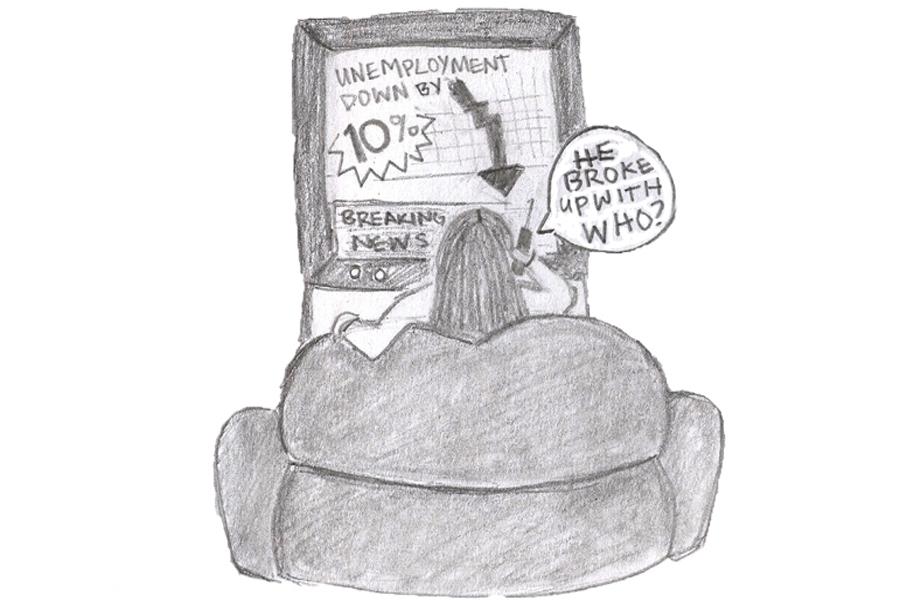Only once in high school do people get to experience a presidential election.
Whether freshmen, seniors, or anyone in between, students know this election is important. Some will vote for the first time, others will understand politics for the first time, and still others will see the effects of certain policies that they didn’t know about before.
No matter where it is in this cycle that students fall, teachers and students alike agree that being an informed citizen is of vital important.
“Policies affect all of us,” AP Government teacher Joe Jelen said. “For example, everyone is here for an education, and both candidates have a vision of what education in our country will look like.”
This election presents two candidates with radically different stances on a huge variety of issues. While some may not pertain directly to those at Staples, issues such as the economy, education, and social policy are important and interesting to Staples students.
Teachers tend to see that students should be generally interested and knowledgeable about the campaign. “It has been a hot Communication Time topic in my classes; we track the polls and look at how they relate to the electoral college,” Jelen said. Suzanne Kammerman, another AP Government teacher, senses students’ interest based on the good questions they are asking in class.
Cole De Monico ’13 disagrees. While he hopes that students care about the election, he doesn’t know that they do. “I don’t see a lot of political activism at Staples. I think kids generally don’t care about this election,” De Monico said. “I’ve heard a variety of reasons, the top two being ‘I can’t vote’ and ‘I don’t like politics.’”
According to national statistics, less than half of eligible youth voters are registered to vote, and in 2008, there was a 51% voter turnout for youth voters. Youth voters are defined as eligible voters in both high school and college.
These statistics do not reflect the pertinence of the issues that the youth should be voting on. According to Jelen, education is probably the issue that most connects with Staples students.
For example, President Obama has passed bills during his presidency to make college more affordable. According to The New York Times, Obama passed a bill that eliminated intermediate fees involved with paying student loans. Some Staples students are in the midst of applying to college, and others will be doing the same within just a few years. Remaining on top of this issue of education will help students make informed decisions to vote for the candidate who will help them the most.
“Education is the key to a capable citizenry – the election may decide whether or not some students will be able to go to college,” De Monico said.
Kammerman stressed the importance of the economy – especially job creation – as an issue that Staples students can relate to. “Before you know it, all students will be in the job market,” she said. Therefore, looking into the specifics of each candidate’s platform on improving unemployment and creating jobs, may be vital to, someday, being able to find work.
Furthermore, De Monico and Kammerman mentioned social policy as an issue that students are generally very interested in. These issues – especially abortion, gay marriage, and religion – are so prevalently covered that students tend to be passionate about them. “The verdicts on these issues will likely be decided by the next president,” Kammerman said. This means that students should be aware of the candidates’ points of view, as well as their own.
Students react differently to these issues. “I usually don’t understand political issues, especially those about the economy,” Kassidy Greer ’16 said. “I know who the candidates are, but everything else goes over my head.”
On the other hand, Luis Cruz ’15 likes learning about the election in school. “I don’t usually look into politics at home, but, when I learn about the issues in school, it’s interesting,” he said.
According to Kammerman, students should choose something that they would like to know more about to begin learning about the election. “It’s easy to learn the basics,” she said. “Utilize social media: follow a candidate on Twitter, like Politico on Facebook, or even go right to the candidate’s website. The more you hear, the more you will ultimately be able to understand.”














































